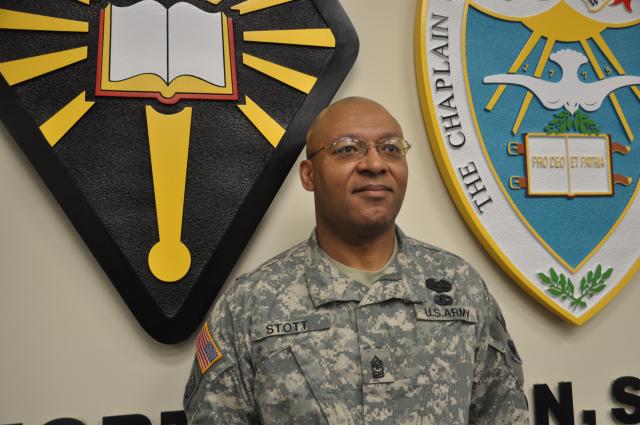Congress Takes First Steps to Protect Religious Liberty in the Military

Defense Authorization Codifies Protections for Chaplains − More Work Needed
The Center for Military Readiness is pleased that the National Defense Authorization Act for 2013 (NDAA) includes a new section of law that reaffirms the constitutional rights of chaplains to act in accordance with their views on issues affecting morality and religious beliefs.
Working with a number of Military Culture Coalition (MCC) group leaders, CMR took a leadership role in efforts to protect constitutional rights of religious liberty in all branches of the service. In particular, the Center published a series of CMR Policy Analyses explaining why religious freedom for military chaplains is essential in supporting the morale and personal readiness of uniformed personnel deployed overseas.
This is the legislative language that was agreed to in the House/Senate Conference Committee, and signed into law as part of the NDAA:
"PROTECTION OF CHAPLAIN DECISIONS RELATING TO CONSCIENCE, MORAL PRINCIPLES, OR RELIGIOUS BELIEFS.-
No member of the Armed Forces may-
(1) require a chaplain to perform any rite, ritual, or ceremony that is contrary to the conscience, moral principles, or religious beliefs of the chaplain; or
(2) discriminate or take any adverse personnel action against a chaplain, including denial of promotion, schooling, training, or assignment, on the basis of the refusal by the chaplain to comply with a requirement prohibited by paragraph (1)."
This section, which did not exist before, pushes back for the first time against the military's new LGBT Law for lesbian, gay, bisexual, transgender rights in the military. -- policies that took effect when Congress rushed to repeal "Don't Ask, Don't Tell" in the 2010 lame-duck session. Military chaplains who support LGBT law already have the freedom to express their views, but the new law protects chaplains from adverse actions for declining to participate in activities contrary to their conscience.
Persistent efforts to explain the need for the legislation, over many months, scored an important victory for chaplains and religious freedom. There is much more to be done for military personnel in general, but (Section 533) of the new NDAA law does include language that is a significant step in the right direction:
"PROTECTION OF RIGHTS OF CONSCIENCE.- -
(1) ACCOMMODATION.-The Armed Forces shall accommodate the beliefs of a member of the armed forces reflecting the conscience, moral principles, or religious beliefs of the member and, in so far as practicable, may not use such beliefs as the basis of any adverse personnel action, discrimination, or denial of promotion, schooling, training, or assignment.
(2) DISCIPLINARY OR ADMINISTRATIVE ACTION- Nothing in paragraph (1) precludes disciplinary or administrative action for conduct that is proscribed by chapter 47 of title 10, United States Code (the Uniform Code of Military Justice), including actions and speech that threaten good order and discipline."
The Obama Administration did not object to the legislation formally before the House/Senate Conference. Subtle changes that conferees made in the legislative language, however, reflect the attitude of activist officials who consider any form of personal expression contrary to LGBT law to be a "threat to good order and discipline." It was not necessary to add the phrase to the House-passed legislation, which already affirmed UCMJ provisions barring actions and speech that threaten good order and discipline.
On January 2, 2013, President Obama issued a signing statement indicating that he continues to be primarily concerned about LGBT personnel, with little regard for the majority of military chaplains and people of faith who serve. President Obama's comments indicate that the administration may try to use regulations to stifle the expression of sincerely held beliefs, but chaplains still will have a statutory basis to oppose directives that violate their religious principles. The new provision also will give support to chaplains who face disciplinary actions related to LGBT Law.
Desirable proposals that passed in the House and were proposed in the Senate were not enacted this time around, but they will come up again. For example, House/Senate conferees did not approve legislative language that would have defined what a chaplain is. They also omitted the section that would have barred same-sex marriages or marriage-like ceremonies on military bases.
Both proposals, sponsored by Representatives Todd Akin (R-MO) and Steven Palazzo (R-MS) had been approved by the House in May 2012. They were also incorporated in a free-standing bill (SR 3526) sponsored by Senators James Inhofe (R-OK) and Roger Wicker (R-MS) in September 2012.
CMR regrets that conferees omitted these constructive measures, particularly when some chaplains have presumed to conduct same-sex "ceremonies" at the U.S. Military Academy at West Point, NY, and even at Fort Polk, LA, a state where same-sex unions are not legal. These are issues that can and should be taken up again in the future. Still, it is satisfying to know that the new law will reinforce chaplains' rights of religious freedom.
Ultimately, the main threat to religious liberty is the existence of policies that advance the lesbian, gay, bisexual transgender agenda and impose heavy burdens of social engineering on military personnel. Congress voted for LGBT law during the 2010 lame-duck session, without understanding its meaning.
CMR appreciates members of the House and Senate who approved this first step in pushing back, and looks forward to working with them and like-minded groups to achieve even more constructive goals in the future.
* * * * * * *

_89x132_1490350447_120x120.png)

